
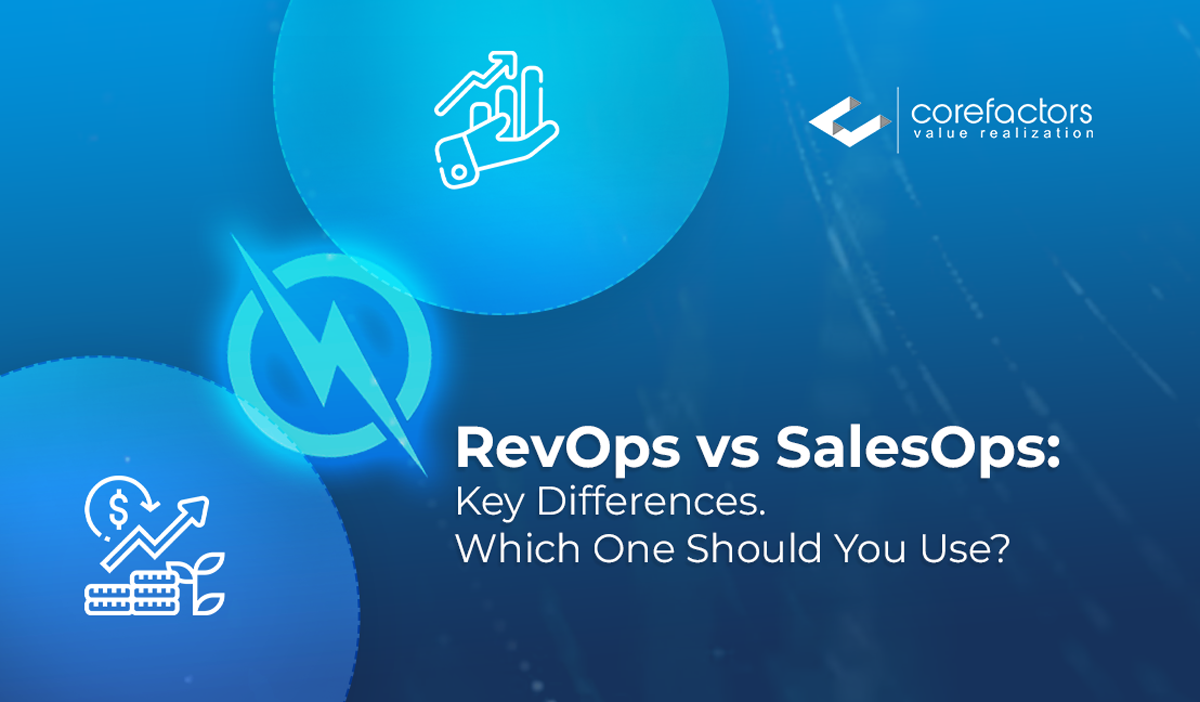
Why is the discussion about RevOps vs SalesOps important?
We all know that without sales there would be no revenue. So won’t efficient and well-planned sales operations be enough to drive revenue growth?
The answer is unfortunately NO.
Sales is dependent on Marketing for generating leads and nurturing them. The Customer Success and Support teams, post the sale, help in customer retention. Acquiring a new customer can cost about four to five times more than retaining existing ones.
Can you see what’s happening here? Revenue generation is no longer solely dependent on sales. It is a culmination of the efforts of multiple departments.
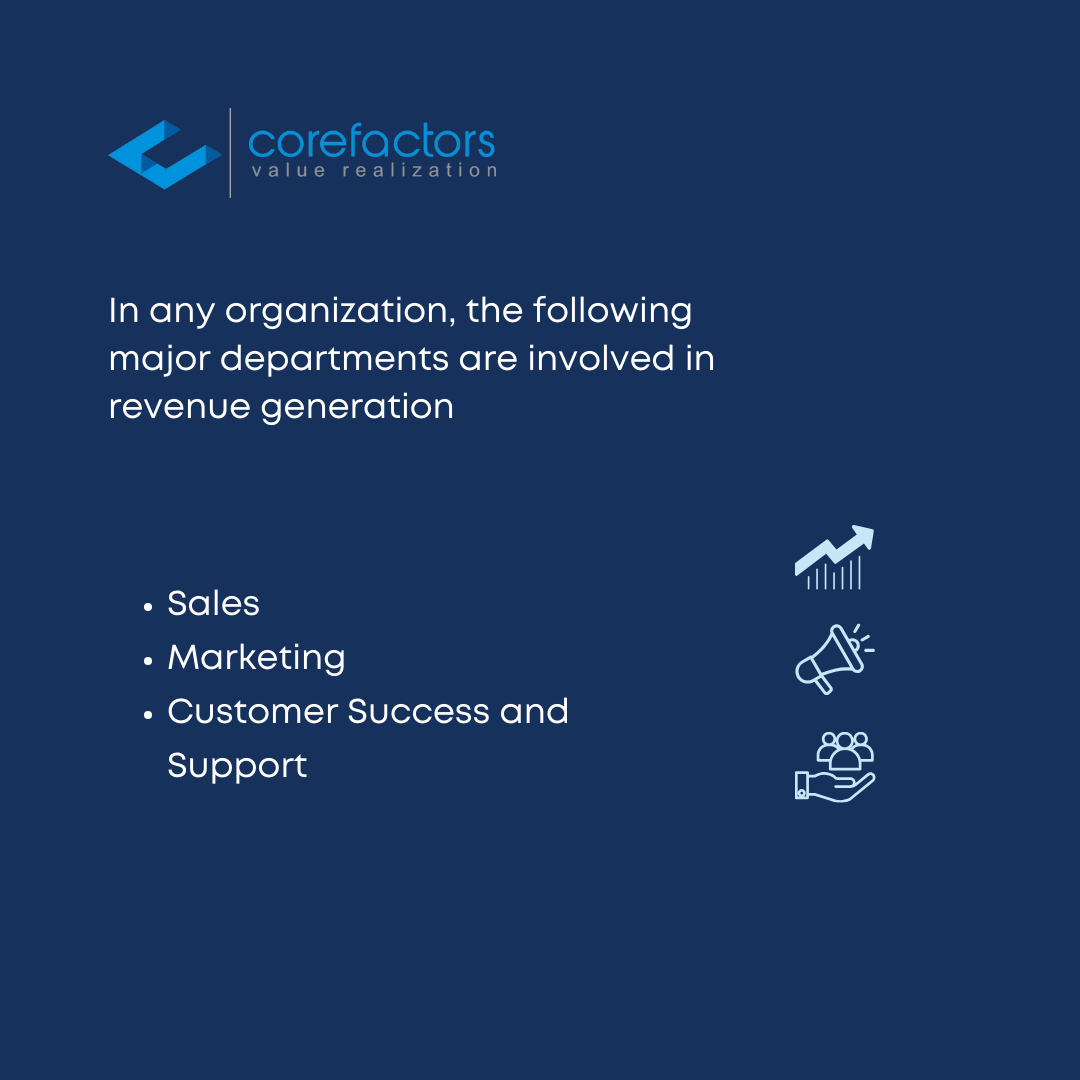
A saturated market makes it difficult to reach new clients. Fierce competition in both product and service-based domains has made it a necessity for every business to do something unique.
Companies have now started investing in the optimization of revenue generation. They are on the lookout for ways to boost sales, increase conversion rates, reduce revenue leakages, and decrease churn rates.
The two most common ways to do so are by implementing Sales Operations (SalesOps) and Revenue Operations (RevOps).
These terms might sound similar but have different functionalities with separate goals and teams involved. This blog will help you better understand the difference between RevOps vs SalesOps and which one to select for your business needs.
What is Sales Operations?
Sales Ops or Sales Operations refers to the support behind the Sales team. Sales Operations have existed in different forms since the 1980s. In the early days, the focus was mainly on crunching numbers and analyzing data for insights.
The objectives and roles of Sales Ops have broadened over time. It is now more about supporting and enabling the sales team by reducing friction in the sales process. The target is to enable the sales reps to maximize selling time while reducing or eliminating any process that keeps the salesperson from selling.
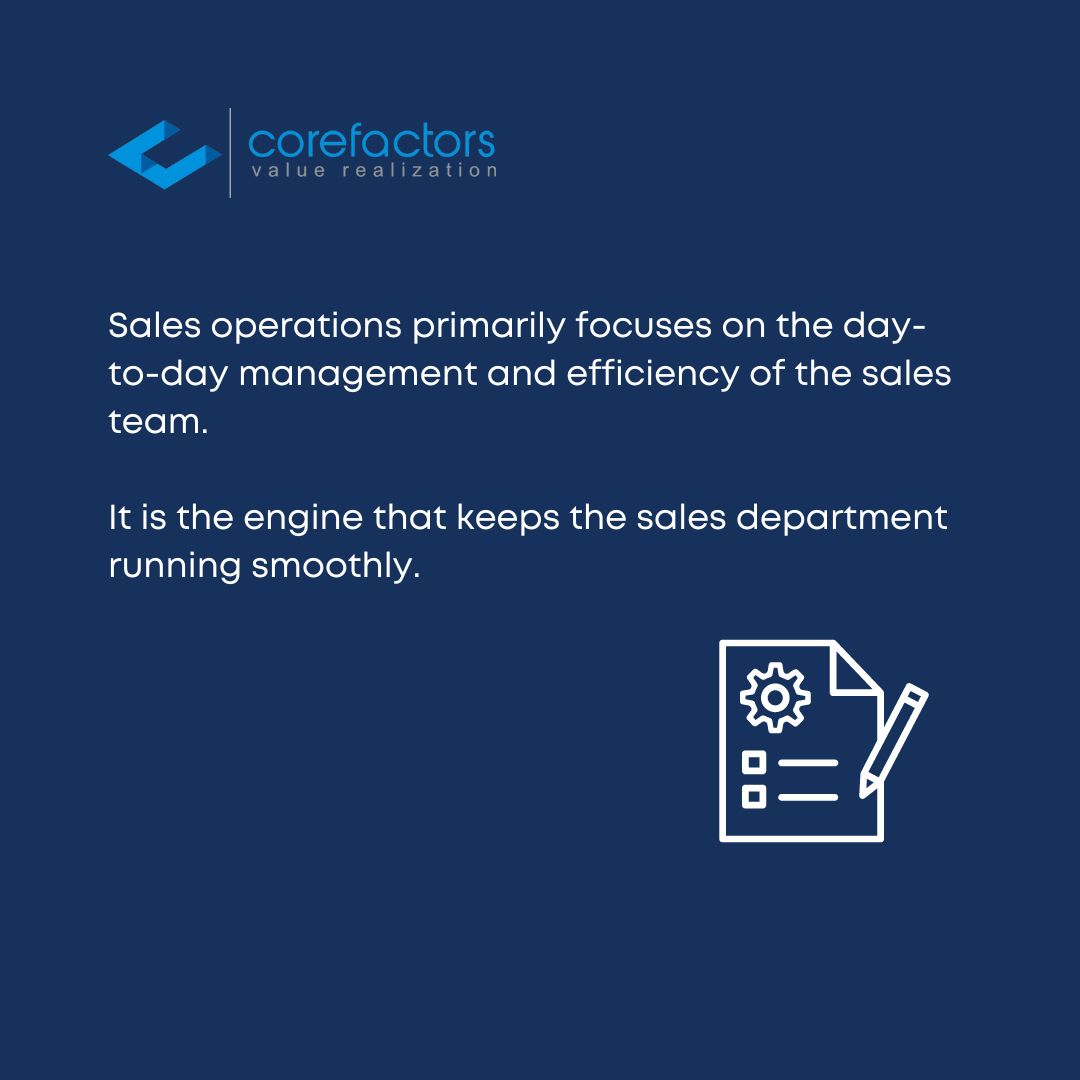
The Sales team generates a large volume of data that can be organized and compiled into useful dashboards. But if the sales reps do this work then who will be at the frontlines actually selling the product or the service? This is where the analytics genius of Sales Ops comes into play.
What is Rev Ops?
As the name Revenue Operations (RevOps) suggests, this function aligns all revenue-generating teams to maximize a company’s revenue growth.
When compared to Sales Ops, Rev Ops is a relatively new concept but more and more businesses are gradually implementing it.
Rev Ops breaks down the silos between your sales, marketing, customer support, and success teams and enables them to achieve these shared objectives:
- Identify new opportunities and target audience
- Convert more leads and reduce customer churn
- Improve interdepartmental communication
- Prevent revenue leakage
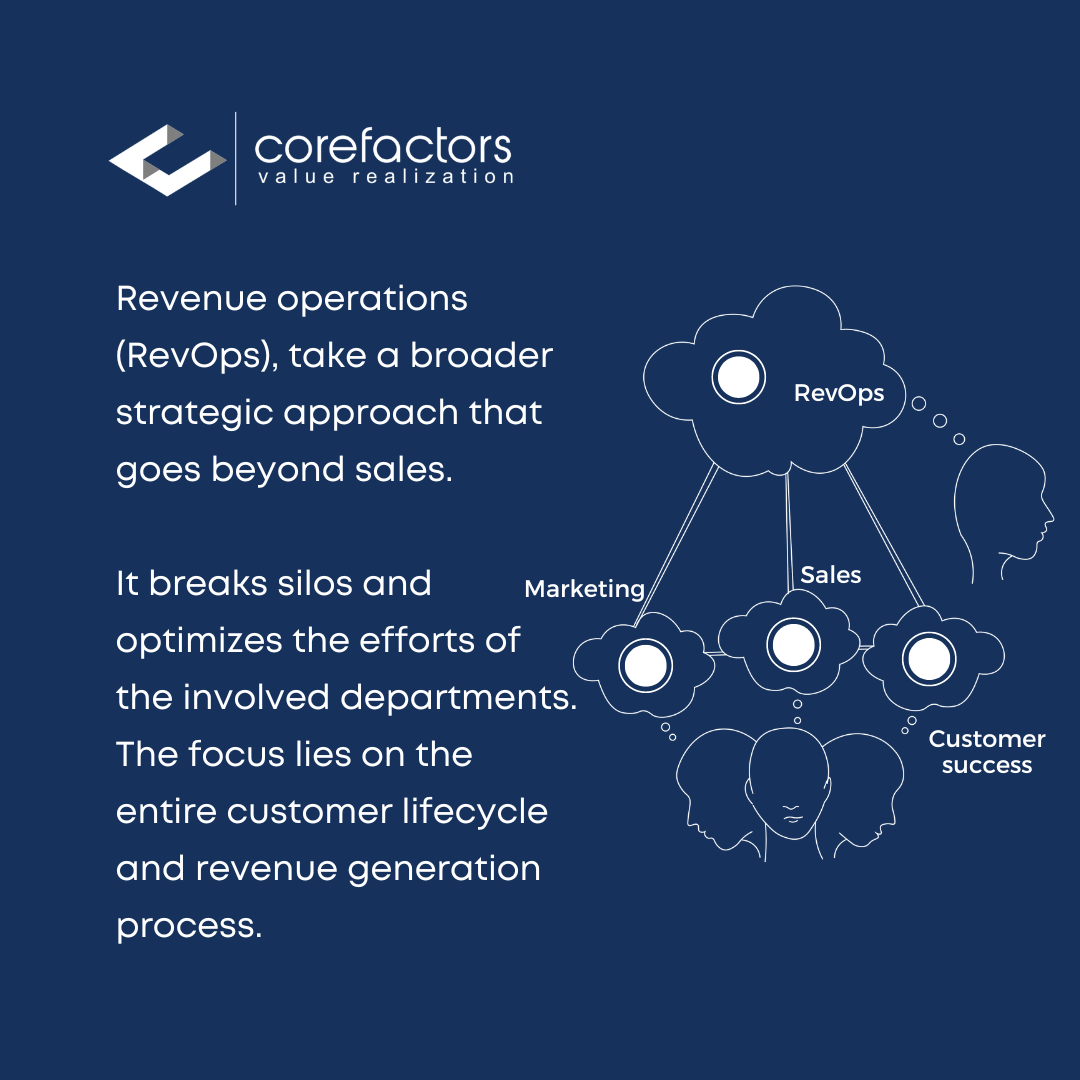
The extent to which a company implements revenue operations depends on its industry, age, structure, and size. Most businesses, in their early stages, prioritize other functions. They undergo a gradual shift to Rev Ops as the business expands.
The next section of the blog will shed more light on the key difference between RevOps vs SalesOps and which is better suited for your business.
RevOps VS SalesOps: Key Differences
Sales already fall under the purview of Rev Ops, so why have Sales Ops at all? As mentioned below, these key points highlighting the difference between RevOps vs SalesOps will answer the question.
#1 Teams Involved
Sales Operations is concerned with only the functioning of the Sales team, their interaction and work are also limited to keeping the interest of the Sales team in mind.
Rev Ops, on the other hand, works with all revenue-generating teams – sales, marketing, customer support, and success.
If the tech team is working on a project that requires the involvement of any of the above-mentioned departments, Rev Ops plays a role there too.
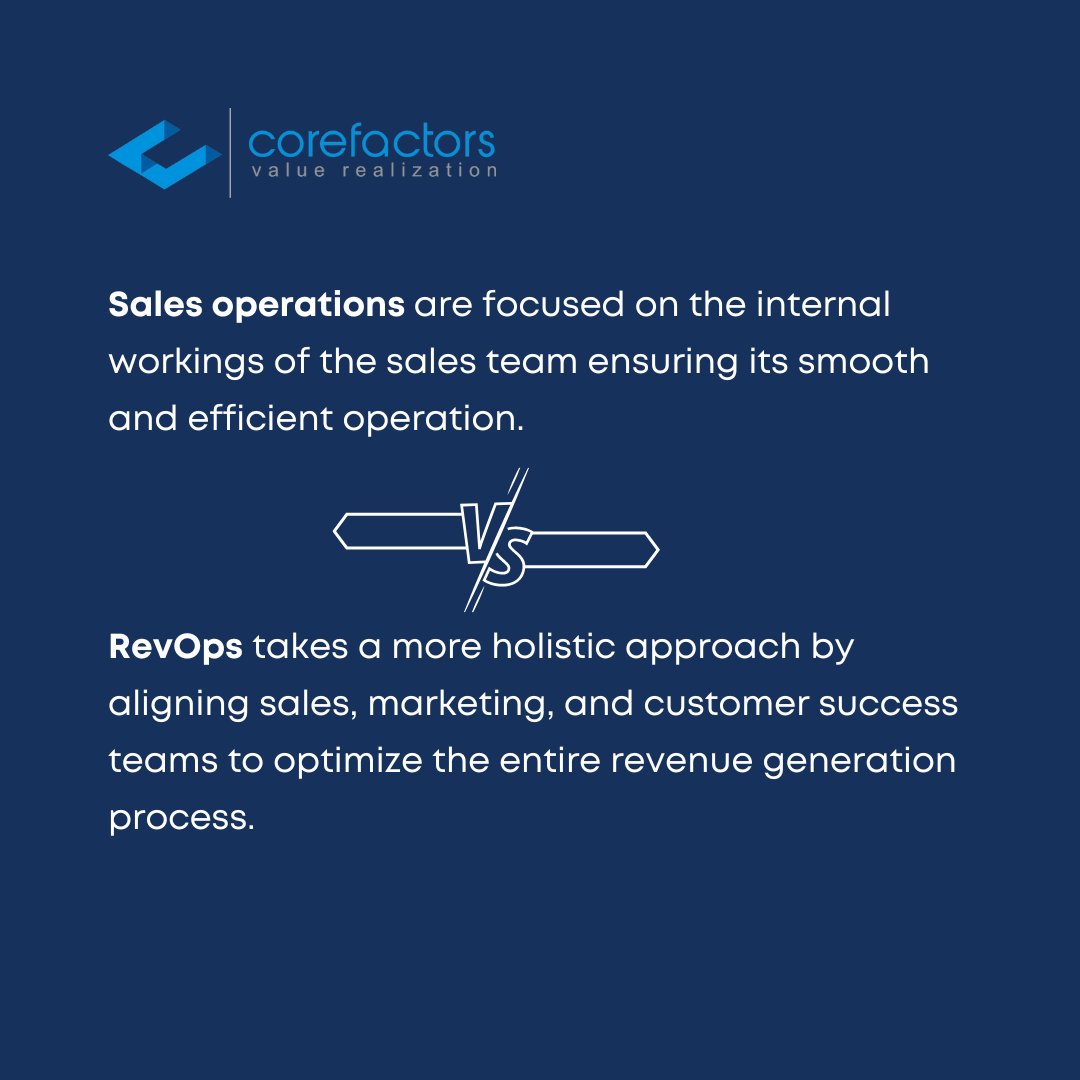
#2 Impact on Customers
The sales reps are on the front lines of your selling efforts and maintain direct contact with customers. Sales Ops ensures the communication and resulting customer experience are nothing less than impressive.
Rev Ops mostly functions behind the scenes. It ensures the different parts of your revenue-generating machine are well-oiled and working in coordination to improve customer experience and increase your conversion rate.
#3 Approach to Revenue
Both RevOps and SalesOps have a larger objective to drive revenue growth. There are multiple areas where the functionalities overlap. The difference between RevOps vs SalesOps lies in the revenue streams they prioritize.
Sales Ops provides support to the sales team to increase revenue from existing customers. Revenue Operations focuses on both existing and new opportunities. It can do so because of the marketing efforts that align with sales objectives.
#4 Key Performance Indicators (KPIs)
There are some common metrics used to measure the success of SalesOps and RevOps. These are generally related to revenue or the customer.
The metrics used for Sales Ops focus more on sale values and close rates. Whereas Rev Ops focuses on all metrics that are concerned with revenue.
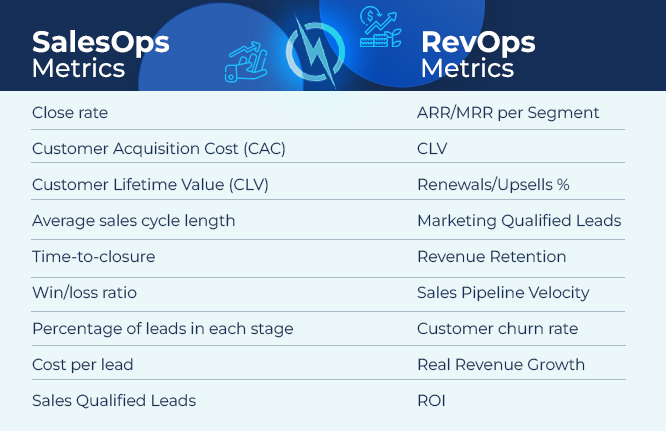
RevOps VS SalesOps: Which One Should You Choose?
With the major difference between RevOps vs SalesOps out of the way, the question remains: Which one should you choose for your business? The answer depends on what you want from these strategies and the areas of your business that need focus.
This next section of the blog discusses certain scenarios that will help you decide between Revenue Operations and Sales Operations implementation.
When Should You Opt for Sales Ops?
As discussed earlier, the Sales Operations’ core function is to reduce friction and support your sales team.
The following scenarios call for the implementation of Sales Ops.
- Your sales team spends more time on operations or procedures that do not involve being on the customer-facing front lines and closing actual deals.
- If there is room for improvement of communication and collaborative spirit both within the sales team and with other departments.
- There is a lack of proactiveness among the sales team when it comes to reaching out to new prospects.
- You have a strong strategy but are struggling with its execution.
When Should You Opt for RevOps?
Opting for Revenue Operations means you are thinking about the bigger picture. So if any of the scenarios mentioned below ring close to home, Rev Ops is your key to success.
- If you require a 360° view of business operations across all teams involved in revenue generation.
- If you want to zoom out and focus on the bigger picture instead of compartmentalizing your focus across multiple individual departments.
- When you want increased cross-functional visibility, accountability, and better communication among teams.
- If you want to break silos and do away with data fragmentation among your customer-facing and revenue-generating teams.
- Suppose you want to simplify complex processes and identify bottlenecks. A robust Rev Ops strategy helps identify and remove roadblocks and streamlines all your revenue-generating processes.
Key Takeaway
The winner of the SalesOps vs RevOps battle depends on your business needs. If you are in an industry that solely relies on direct sales, the former will work well for you. But if you plan on expanding the business, the time to jump ship will inevitably come.
Corefactors understand the needs that a growing business has. In order to support our clients who range from big shots to SMEs, we provide a RevOps-enabled CRM that boosts revenue growth.
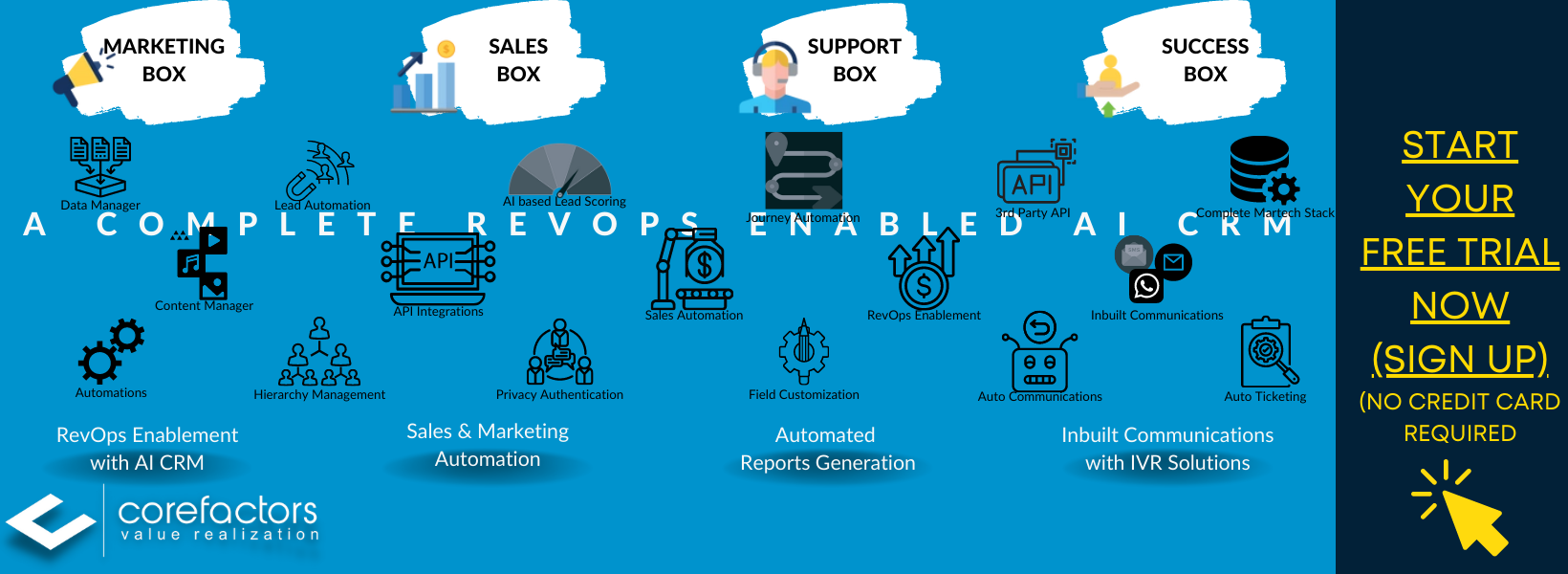
Before opting for any of these strategies, audit the present scenario and keep the future goals of the business in mind.











